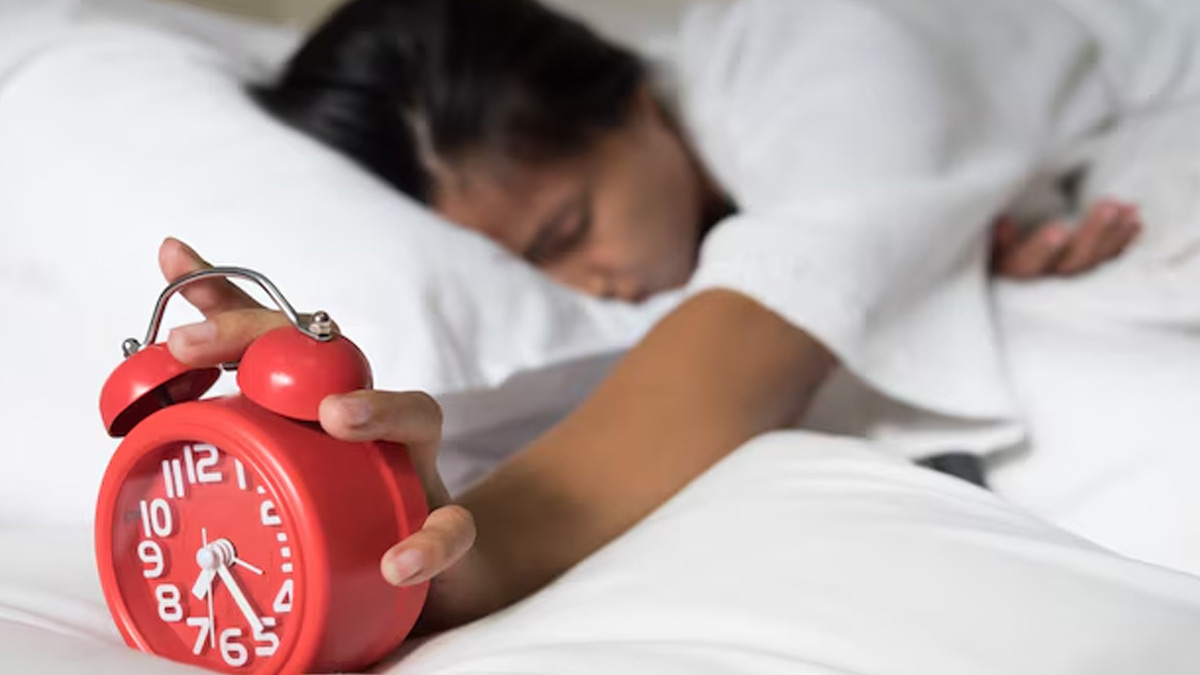
Are you someone who often complains about sleep disturbances? Do you have a difficult time sleeping at night or waking up in the morning? These may indicate that you have a poor sleep schedule. Poor sleep can impair your ability to function in daily activities like work or driving. Not only this, it can also lead to the development of various health conditions, such as heart disease and obesity. We spoke to our expert Dr Viswesvaran Balasubramanian, Consultant Interventional Pulmonology And Sleep Medicine, Yashoda Hospitals, Hyderabad, who listed the reasons behind your poor sleep schedule.
Table of Content:-
Causes Of Irregular Sleep Schedule

Irregular Sleep Routine
Going to bed and waking up at different times each day disrupts your body's internal clock, making it harder to fall asleep and wake up naturally. Therefore, set a consistent sleep routine for yourself and stick to it. As indicated by a review from 2019, sleep disturbance has emerged as a concealed public health crisis in recent times.
Screen Time Before Bed
Exposure to the blue light emitted by screens, such as smartphones, tablets, and computers, can interfere with the production of melatonin, a hormone that regulates sleep.
According to a 2008 study, exposure to increased levels of blue light during daylight hours can aid in feeling more alert during the day and more inclined to sleep in the evening.
Also Read: Are You Sleeping Too Much? Expert Explains How Much Sleep Is Too Much Sleep

Caffeine and Alcohol Consumption
Consuming caffeine or alcohol close to bedtime can disrupt your sleep by increasing alertness or causing frequent awakenings during the night. According to the Sleep Foundation, consuming caffeine can delay the onset of sleep, decrease total sleep duration, and diminish the perceived quality of sleep. Also, it can disrupt the amount of deep, slow-wave sleep obtained, a vital phase necessary for feeling rejuvenated the following day.
Stress and Anxiety
Persistent stress or anxiety can lead to racing thoughts at night, making it difficult to relax and fall asleep. As a remedy, a study conducted in 2017 found that jotting down your list of tasks can contribute to a sense of relaxation and empowerment, ultimately enhancing the quality of sleep.
Eating Heavy Meals Late
Did you know eating large or spicy meals too close to bedtime can also affect your sleep quality? This is because it causes discomfort and indigestion, making it harder to sleep soundly.

Lack of Physical Activity
It may be more difficult to fall asleep at night if you don't exercise enough during the day. You can regulate your sleep-wake cycle by engaging in regular physical activity. According to the Sleep Foundation, engaging in moderate to vigorous exercise can enhance sleep quality in adults by shortening the time it takes to fall asleep and reducing periods of wakefulness during the night. Furthermore, physical activity can alleviate daytime drowsiness and, in certain individuals, diminish reliance on sleep medications.
Sleep Environment
“Another factor to keep in mind is sleeping in a relaxed environment. An uncomfortable sleep environment, such as a noisy or brightly lit room, can disrupt your sleep and prevent you from getting the rest you need”, added Dr Balasubramanian.
Napping Too Much
Taking long or frequent naps during the day can interfere with your ability to fall asleep at night and disrupt your sleep schedule. According to a 2013 study, naps differ from nocturnal sleep as sleep stages vary depending on the time of day and nap duration. While naps are typically rejuvenating, they may be followed by sleep inertia, a brief period (20–30 minutes) of reduced cognitive function and performance, temporarily masking the restorative effects of sleep.
Ignoring Sleep Disorders
Untreated sleep disorders, such as sleep apnoea or insomnia, can significantly disrupt your sleep and affect your overall health and well-being. According to a review published by the Institute of Medicine (US) Committee on Sleep Medicine and Research, Prolonged sleep deprivation and sleep disorders have been linked to various adverse health outcomes, such as heightened susceptibility to hypertension, diabetes, obesity, depression, heart attack, and stroke.
Using Sleep Aids Improperly
“While sleep aids can be helpful in the short term, relying on them too heavily can lead to dependency and may not address the underlying issues causing your sleep problems”, added Dr Balasubramanian.
By addressing these common sleep saboteurs and making positive changes to your sleep habits and environment, you can improve the quality of your sleep and feel more rested and energised during the day.
[Disclaimer: This article contains information provided by an expert and is for informational purposes only. Hence, we advise you to consult your expert if you are dealing with any sleep issues to get the necessary treatment.]
Also watch this video
How we keep this article up to date:
We work with experts and keep a close eye on the latest in health and wellness. Whenever there is a new research or helpful information, we update our articles with accurate and useful advice.
Current Version
